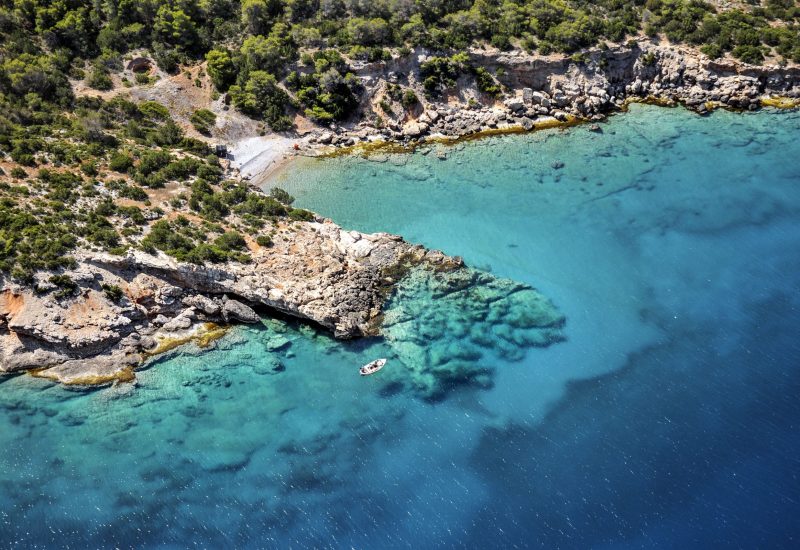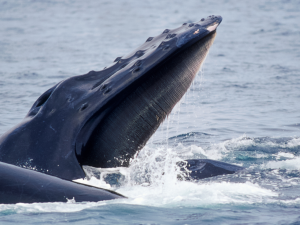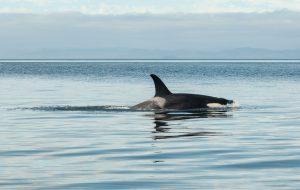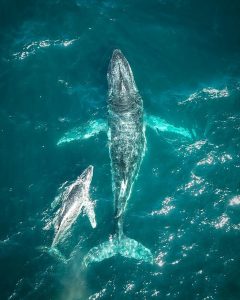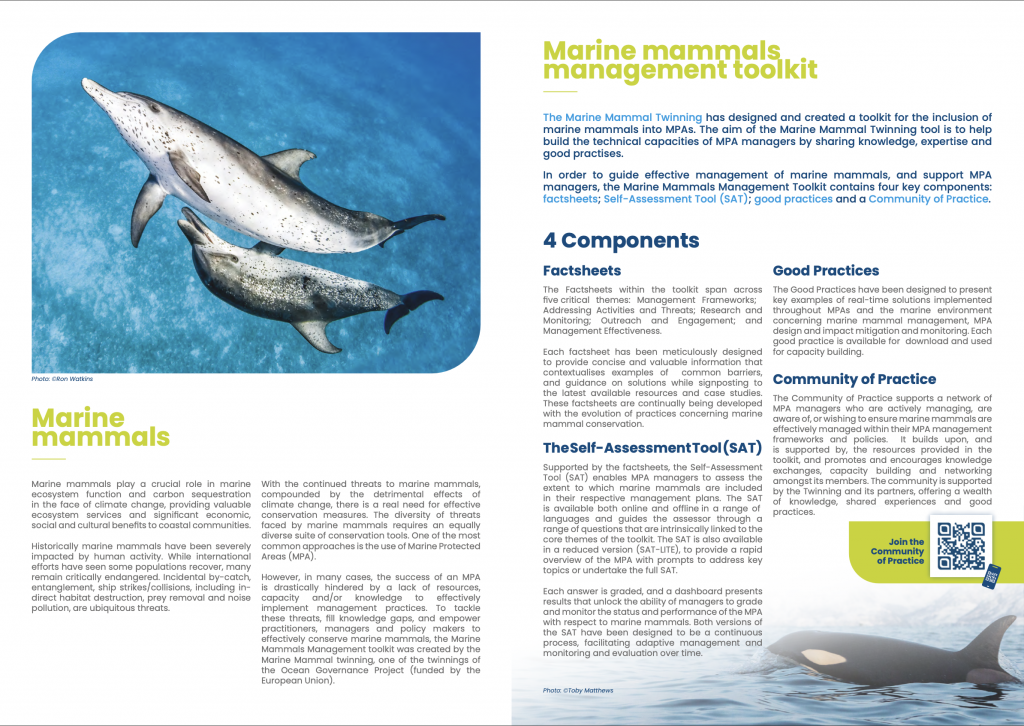The International Maritime Organisation (IMO) has designated the North-Western Mediterranean Sea as a Particularly Sensitive Sea Area (PSSA) to reduce collisions between ships and endangered whales. The decision, proposed by Spain, France, Italy, and Monaco, aims to address the major cause of mortality for sperm whales and fin whales in this region, which is collisions with vessels due to the intense maritime traffic.
The North-Western Mediterranean region is characterised by high vessel movements, with approximately 220,000 ships passing through annually. Merchant vessels typically maintain speeds between 14-20 knots, while high speed vessels can reach up to 35 knots. These factors increase the risk of collision with large cetaceans, such as sperm whales and fin whales, which still inhabit the area despite the intense marine traffic. The IMO’s Marine Environment Protection Committee, the UN agency responsible for regulating maritime transport, made the decision based on scientific evidence confirming ship strikes as the primary human-induced cause of whale deaths in this part of the Mediterranean.
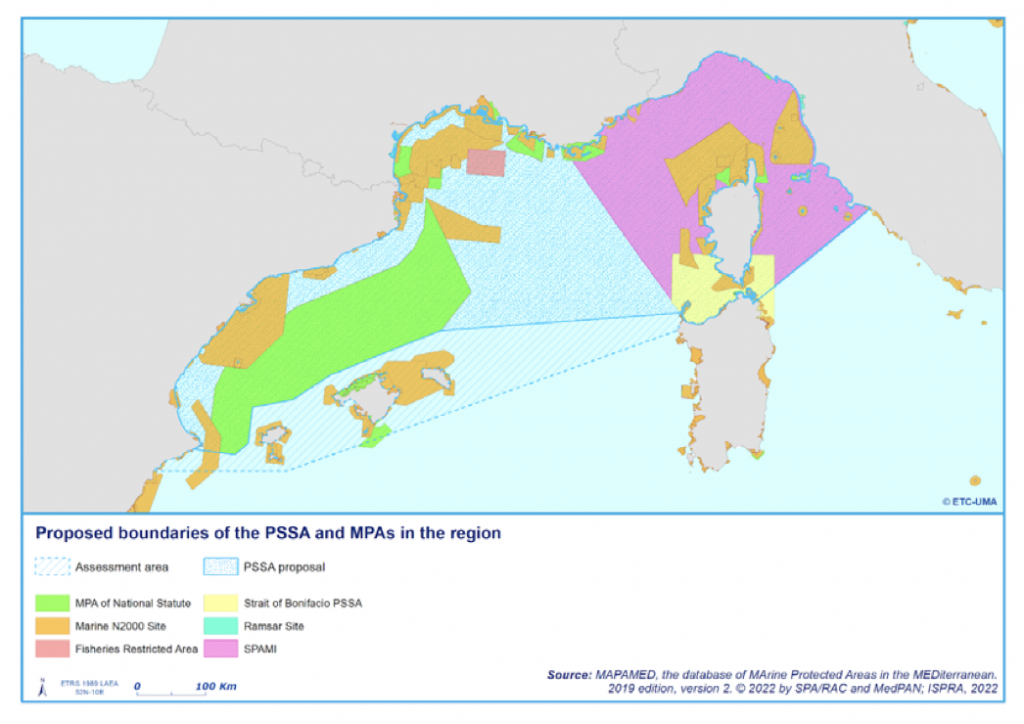
Source: MAPAMED
The NW Mediterranean PSSA encompasses critical whale habitats, including the Mediterranean Cetacean Migration Corridor, the Pelagos Cetacean Sanctuary, and the Important Marine Mammal Areas (IMMAs) known as the “Gulf of Lions Shelf” and the “Slopes and Canyons System of the North-West Mediterranean Sea”. In addition to sperm whales and fin whales, the region is home to several other cetacean species including Cuvier’s beaked dolphins, pilot whales, Risso’s dolphins, bottlenose dolphins, striped dolphins, and common dolphins. The significance of this area for fin whales is evident, as approximately 67% of the entire population of Mediterranean fin whales reside within the PSSA. The estimated number of sperm whales residing within the proposed PSSA ranges from 300-600 in winter, out of a total estimate of around 1,400 individuals in the Mediterranean.
The Mediterranean Sea has experienced a significant increase in shipping capacity and vessel size since the mid-1990s. With further growth expected, especially with the expansion of the Suez Canal, ship collisions with large whales pose a substantial threat to their population. Currently classified as endangered on the IUCN Red List, the fin and sperm whale subpopulations in the Mediterranean Sea face the risk of eventual disappearance if effective conservation measures are not put in place.
Due to the difficulty of predicting the presence of these whales in specific areas, diverting ship routes to avoid collisions is not feasible. Consequently, reducing vessel speed remains the only proven measure to mitigate the risk of fatal collisions. Whilst many welcome this change, some, including the Director of International Relations at Ocean Care, expressed appreciation for the decision but emphasized the importance of mandatory speed reduction measures. Scientific committees, including the Agreement on the Conservation of Cetaceans of the Black Sea, Mediterranean Sea, and Contiguous Atlantic Area (ACCOBAMS), have consistently recommended speed reduction as an effective means to prevent whale collisions. Mediterranean Basin States, in a resolution adopted in December 2022, also promoted vessel speed reductions as an operational measure that offers multiple environmental benefits, including noise and greenhouse gas emission reduction.
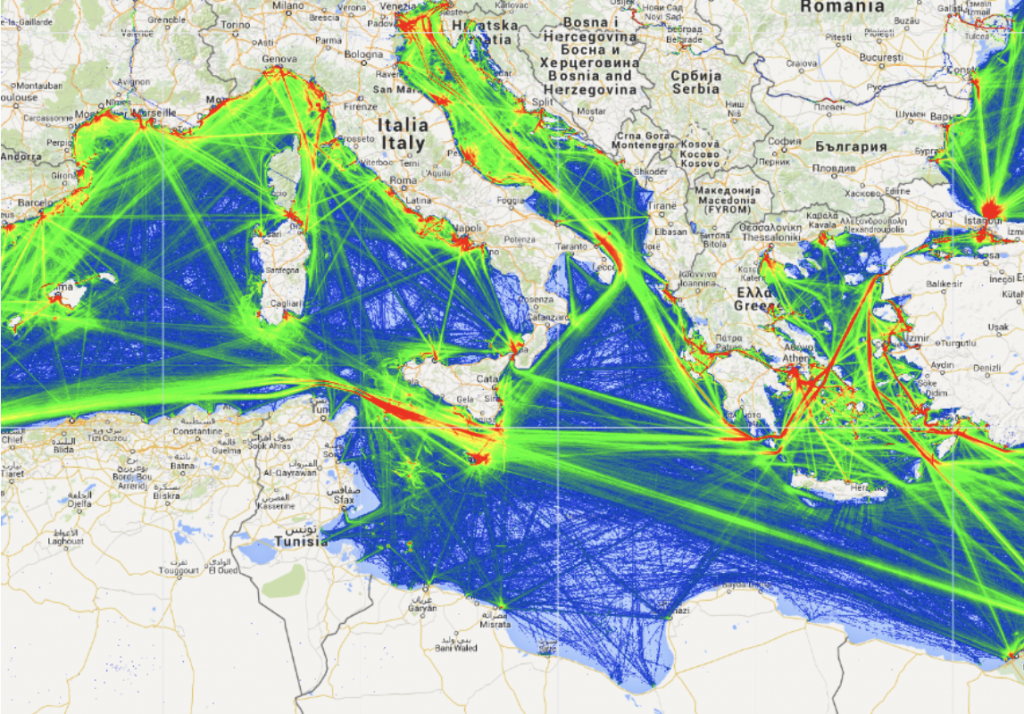
Ship traffic density map of the Mediterranean Sea from www.marinevesseltraffic.com
Ship strikes have gained international recognition as a significant threat to cetaceans, particularly as shipping traffic, vessel size, and speed continue to rise. Collisions involve various vessel types, and the severity of injuries to whales increase with vessel speed. Evidence indicates that maintaining vessel speeds below 10 knots significantly reduces the likelihood of lethal collisions. The protective measures associated with the PSSA, which apply to commercial ships and pleasure yachts from 300 gross tonnage and above, have been approved but remain recommendatory. Warships and governmental ships operated for non-commercial purposes are still exempt from these measures.
Mariners are urged to navigate with caution within the North-Western Mediterranean PSSA, especially in areas where large and medium cetaceans are detected or reported. While voluntary speed reductions of 10 to 13 knots are recommended, vessels should maintain a safe speed to facilitate collision avoidance and ensure manoeuvrability. The IMO’s resolution acknowledges that without protective measures within the PSSA, a decline in the populations of medium and large cetaceans is expected. Implementing a speed reduction strategy will significantly decrease the likelihood of collisions and fatal injuries to marine life.
The designation of the North-Western Mediterranean as a Particularly Sensitive Sea Area represents an important step towards safeguarding these magnificent creatures. However, the implementation of mandatory speed reductions will be crucial to ensuring the effective protection of whales and the long-term preservation of their habitats.

